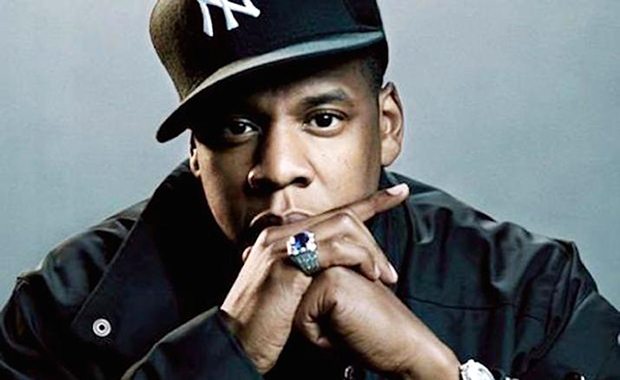Success Advice
10 Well Known Musicians Who Are Brilliant Entrepreneurs

Some may believe that being a rock star doesn’t involve much brains and intellect however if you really think about it, being able to make music is something that requires ample creativity, motivation and determination. These three ingredients are also key to becoming a successful businessman and entrepreneur.
Here are 10 musicians/bands who, in addition to faring well in the brave new world of the 21st century music industry, all have a gift for making good business decisions.
Entrepreneur Musicians:
-
The Eagles
In 1977, lite cowboy and cocaine rockers the Eagles went to court to gain control of their music publishing from their former manager and Asylum Records label head David Geffen. From the very beginning of their career, Eagles founders drummer Don Henley and guitarist Glenn Frey never pretended to be anything but ambitious, and they backed up their ambitions with a string of hit singles and albums. By the mid-’70s, the Eagles were selling one million albums a month, and playing hardball with their label and live concert promoters, receiving whatever they demanded as a percentage of gate ticket sales.
The Eagles won their suit against Geffen and regained control of their publishing, worth tens of millions of dollars. But success has had its cost. The band’s cynicism about the music business, not to mention women and their own fans, comes through loud and clear in the lyrics to several of their hit songs. And while Eagles continue to tour, selling out stadiums is difficult to do thanks in part to our current economy.
-
Jay-Z
A child of the Marcy Houses housing project in Bedford-Stuyvesant Brooklyn, Shawn Carter, better known as “Jay-Z,” went from releasing his first recordings on his own label, to becoming one of the most successful hip-hop artist entrepreneurs of all time. Jay-Z’s empire includes stakes in the 40/40 club chain, the New Jersey Nets basketball team, the clothing line Rocawear, and the Roc Nation label.
He recently launched a lifestyle website, Life + Times, to help perpetuate the notion of Jay-Z as a brand. “My brands are an extension of me,” Jay-Z has said. “They’re close to me. It’s not like running GM, where there’s no emotional attachment.”
-
Trent Reznor
Nine Inch Nails, formerly on Interscope Records, are among a handful of top-selling artists, who have recently chosen to manage and release their music themselves instead of under the auspices of a major label. Nine Inch Nails front man and mastermind Trent Reznor is currently exploring a variety of ways to finance and perpetuate the Nine Inch Nails “brand,” including allowing fans to video tape concerts, and releasing recordings, sometimes for free or pay what you will, under a Creative Commons license, allowing for remixes of the material.
“There’s a lot of opportunities I think to make money,” says Reznor with regard to Nine Inch Nails and its website. “But it shouldn’t always be about just making money.”
-
Madonna
Madonna’s net worth has been estimated to be between $525 million and $600 million. Early on in her career, she had a strong sense for business and, perhaps more importantly, took care of herself physically by exercising and avoiding drugs and alcohol. The scope of her talents, which include singing, songwriting, fashion designing, dancing, and acting, is mind blowing, linking her to other great multifaceted female entertainers, like Josephine Baker, Judy Holiday, and Marilyn Monroe.
However, in spite of her reputation and skill at artistic appropriation, Madonna’s accomplishments in the music industry as a woman, including creative and financial control of her brand, are unprecedented.
-
Katy Perry
It’s safe to say that without Madonna, there would be no Katy Perry, although the two so far have yet to collaborate or, perhaps more surprisingly, share a smooch or two. Perry’s estimated net worth, $44 million, seems a paltry sum compared to the Material Girl’s moola.
However, according to Vanity Fair, Perry “reinvests money in her concert production, thinks before chartering a private plane, and isn’t frivolous about buying clothes…” As a singer, songwriter, entrepreneur (she has her own line of perfume), and once again (thankfully) single woman, Perry is only just getting started.
-
Bob Dylan
One recurring character in the lives of successful rock musicians is an aggressive, bullish manager, and for singer-songwriter Bob Dylan, Al Grossman was exactly that kind of a manager. Grossman began managing Dylan after he’d already achieved significant success in the folk music community. But Dylan had ambitions bigger than being the world’s best-loved folk singer.
In his book, The Mansion on the Hill, Fred Goodman writes, “Grossman’s greatest achievement … was creating a commercial environment in which his clients could make a lot of money but preserve their integrity.” Dylan has since continued to successfully navigate the world of business and art, recording and touring at a pace of a musician half his age.
-
The Grateful Dead
The Grateful Dead have always understood and cultivated the power of visual branding, although the band members would like you to believe otherwise. “You didn’t want to turn the Dead into a knickknack trinket business,” drummer Mickey Hart said when asked about past proposals for merchandising.
In the coming years, Grateful Dead logos will appear on several new merchandise items, including coffee mugs, luggage tags, lunch boxes, and skateboards. Their upcoming merchandising blitz, which includes an elaborate online video game, will give birth to a new generation of Deadheads.
-
Dolly Parton
OK, so Parton isn’t a rock musician, but country and early rock and roll are close like kissing cousins, so we think she belongs on this list. Parton’s business acumen is formidable, and probably underestimated, perhaps because of her blond, bubbly, and buxom public image. She has been called the wealthiest country music star, with an estimated net worth of $450 million dollars. Her songwriting has yielded huge hits, including “I Will Always Love You,” sung memorably by the late Whitney Houston.
Dolly Parton’s business ventures include a film and television production company and the Dollywood theme park, located in Tennessee, which hosts approximately three million visitors annually. Not bad for someone who grew up “dirt poor” in a one-room cabin.
-
Arcade Fire
When Arcade Fire took home the 2011 Grammy for Album of the Year, plenty of people watching the televised broadcast wondered aloud, “Who the hell is Arcade Fire?” This still relatively young band, lead by the husband and wife duo of Win Butler and Régine Chassagne, remains signed to Merge Records, an independent label that supported them from the very beginning. “In the mainstream music business,” says music executive Danny Goldberg. “Merge is widely respected, not only because they signed Arcade Fire, but because they held on to them.”
Arcade Fire has achieved unprecedented success for a so-called “indie-rock band” by keeping their overhead manageable, retaining control of their music and masters, and using the Internet to promote their music and connect to their fanbase.
-
Jack White
Singer, songwriter, guitarist, drummer, actor, and producer (whew!) Jack White is another example of a young musician operating successfully outside the major record label model. At 15, White, who in addition to playing guitar had seriously considered entering a seminary, began an apprenticeship upholstering furniture.
Jack White’s eye for design and creative marketing would serve him as one half of the duo The White Stripes, known for their red, white, and black color schemes, as well as for their Detroit-inspired interpretations of rural and electric blues. White’s Nashville-located Third Man Records is home to a vinyl record store, a photo studio and dark room, and a live venue with an analog recording booth. Its website boasts that Third Man Records “strives to bring a spontaneous and tangible aesthetic back into the record business.” Amen, brother!
Article By: Roxanne McAnne
Success Advice
How to Choose the Best Affiliate Programs for Your Blog
If you follow these steps, you can create an affiliate marketing plan that makes money, fits well with your content, and connects with your readers

Picking the right affiliate programs for your blog is really important. It can make a big difference in how much money you can make and how much your readers get out of your blog. With so many choices out there, deciding which ones to go with can be tricky.
This guide is here to make it easier for you. It will give you clear steps and helpful tips to choose affiliate programs that fit well with what your blog is about, what your readers like, and what you stand for.
For more articles on this theme, please head over to this blog https://blog.partners1xbet.com/.
Understanding Affiliate Marketing
Before you start picking affiliate programs, it’s important to really understand what affiliate marketing is and how it works.
Basically, affiliate marketing is when you promote a product or service on your blog, and then you get paid a little bit every time someone buys something or does something because you recommended it.
It’s great for both the person selling the product and the blogger, because the seller gets more sales with low risk, and the blogger can make money from their blog.
How to Choose the Right Affiliate Programs for Your Blog
1. Assess Your Niche and Audience
The key to doing well in affiliate marketing starts with really knowing what your blog is about and who reads it. Consider the following:
- Your blog’s content: What topics do you cover? Ensure the products or services you promote are relevant.
- Your audience’s interests and needs: What solutions are they seeking? Choose affiliate programs that offer products or services that solve their problems or enhance their lives.
2. Research Potential Affiliate Programs
Once you know what your blog is about and what your readers want, start looking for affiliate programs. Choose ones that are well-known for good products, great customer service, and helpful support for affiliates. Resources to find these programs include:
- Affiliate networks like ShareASale, Commission Junction, and ClickBank.
- Direct searches for “[Your Niche] affiliate programs” in search engines.
- Recommendations from other bloggers in your niche.
3. Evaluate the Commission Structure
The commission structure is a critical factor to consider. Look for programs that offer competitive rates that make your efforts worthwhile. Consider:
- The percentage of commission per sale.
- Whether the program offers a flat rate per action (e.g., per sign-up).
- The cookie duration, which affects how long after a click you can earn commissions on sales.
4. Consider the Program’s Reputation and Sureness
Join affiliate programs with a solid reputation for quality and sureness. This not only ensures that you’re promoting good products but also that you’ll be paid on time. You can:
- Read reviews from other affiliates.
- Check the program’s history and background.
- Look for any complaints or issues reported online.
5. Analyze the Support and Resources Offered
A good affiliate program gives you things like ads to use, training on their products, and helpful managers. Having access to these resources can really help you do a better job at promoting their products.
6. Understand the Terms and Conditions
Before signing up, thoroughly review the program’s terms and conditions. Pay close attention to:
- Payment thresholds and methods.
- Any restrictions on how you can promote their products.
- The program’s policy on affiliate marketing on social media platforms.
7. Test the Product or Service
If possible, test the product or service before promoting it. This firsthand experience allows you to offer genuine charge and build trust with your audience.
8. Look for Recurring Commission Opportunities
Some affiliate programs pay you again and again for subscriptions or services that charge fees regularly. These can provide a more stable income compared to one-time sales commissions.
Implementing Your Choice
After choosing the best affiliate programs, the next step is to smoothly include your affiliate marketing in your content plan. This includes:
- Creating valuable content that naturally incorporates affiliate links.
- Disclosing your affiliate affairs transparently to maintain trust with your audience.
- Tracking your results to understand what works best for your audience and adjusting your strategy accordingly.
Picking the best affiliate programs for your blog involves careful planning, research, and making sure they match what your audience likes and needs.
If you follow these steps, you can create an affiliate marketing plan that makes money, fits well with your content, and connects with your readers.
The real key to doing well with affiliate marketing isn’t just about the products you talk about, but also how much your audience trusts and values your advice.
With enough time, patience, and hard work, your blog can grow into a successful space that earns a good amount of affiliate money and helps your readers choose the right products.
Success Advice
The Power of Ethical Leadership: How Integrity Drives Success
By leading with integrity and ethics, leaders create an environment where employees feel excited to come to work

What differentiates a positive organizational culture that enjoys a clean reputation and long-term success from a toxic culture drowning in scandals, mistrust, and legal fines? (more…)
Success Advice
10 Landing Page Hacks Experts Are Using to Generate Leads
Crafting a landing page that converts is both an art and a science

If you are in the online marketing world, you know the importance of a high-quality landing page. It’s like a secret sauce that can turn a casual user into a solid lead. I will walk you through ten great tips that have worked wonders for me and could do the same for you in creating landing pages that generate leads. (more…)
Success Advice
An Easy to Follow 8 Step Strategy for Creative Problem Solving
A complete process of creative problem-solving encompasses finding problems, developing creative solutions, and implementing your solutions

No matter where you look around the world today, entrepreneurs face a common challenge: The need to stand out from their competitors and win over customers. (more…)
-

 Life4 weeks ago
Life4 weeks agoThe Best Techniques to Boosting Your Memory in a Busy World
-

 Success Advice4 weeks ago
Success Advice4 weeks agoAn Easy to Follow 8 Step Strategy for Creative Problem Solving
-

 Entrepreneurs4 weeks ago
Entrepreneurs4 weeks agoCrisis-Proof Your Business Now: Essential Strategies for Every Entrepreneur
-

 Success Advice3 weeks ago
Success Advice3 weeks ago10 Landing Page Hacks Experts Are Using to Generate Leads
-

 Entrepreneurs2 weeks ago
Entrepreneurs2 weeks agoThe Mindset Shifts Required to Become a Successful Online Entrepreneur
-

 Success Advice2 weeks ago
Success Advice2 weeks agoThe Power of Ethical Leadership: How Integrity Drives Success
-

 Entrepreneurs2 weeks ago
Entrepreneurs2 weeks ago6 Hacks to Boost Your Productivity as a Business Owner
-

 Success Advice1 week ago
Success Advice1 week agoHow to Choose the Best Affiliate Programs for Your Blog

























5 Comments